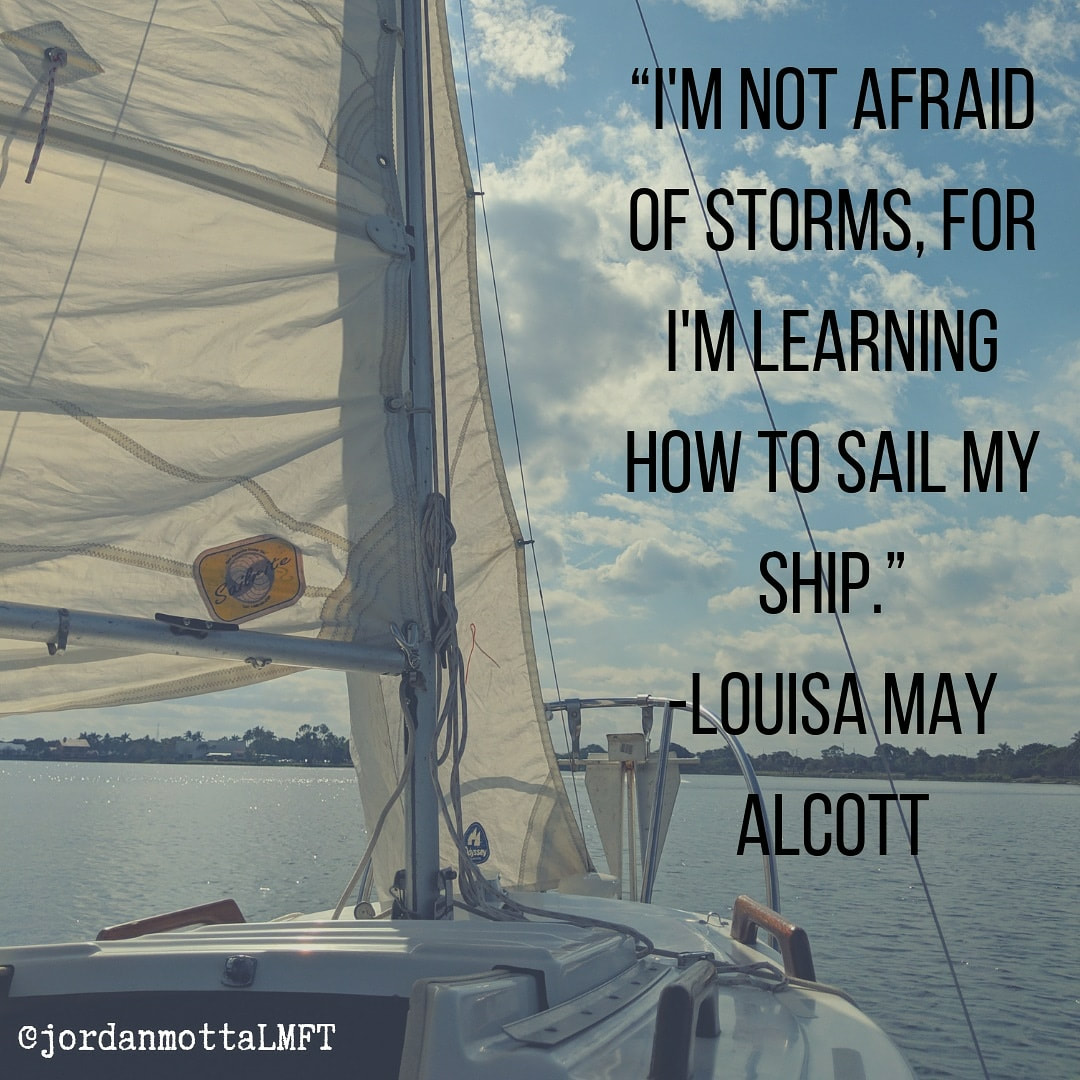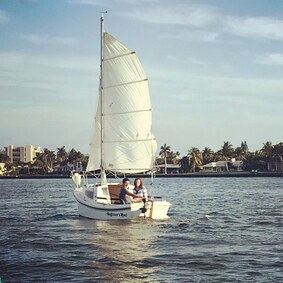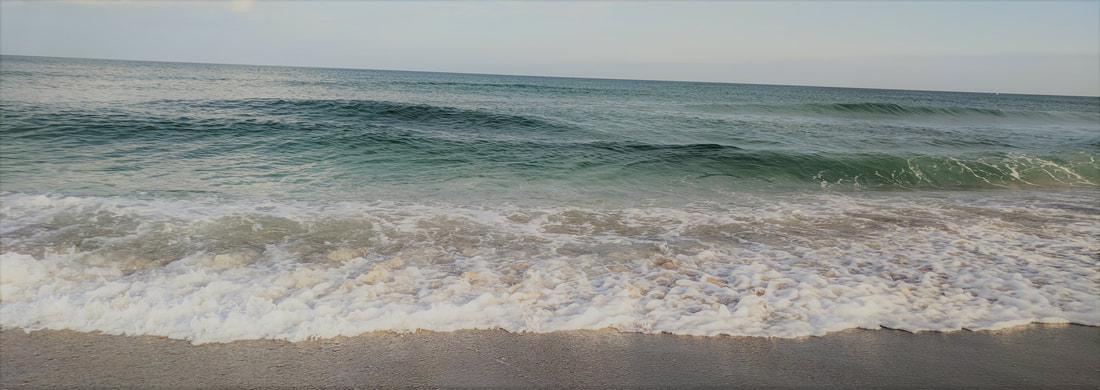 Learning to Sail My Ship is my little corner where I meditate on the ups and downs of learning to sail with my partner and exploring how I can put what I’ve learned into my daily life. Beginner’s Mind is a concept from Zen Buddhism and also the name of my 1990 West Wight Potter sailboat... here she is above, on our first time out [click to watch the naming happen]. Beginner’s Mind speaks to the value of maintaining the open-minded, unassuming and excited type of curiosity that you have when you first learn something. It is used in meditation when you’ve grown bored watching the rise and fall of your 893rd breath—Beginner’s Mind reminds you that each breath, each sound, each texture under your fingertips is new and full of life. Being in a beginner’s mindset increases the joy of a moment and helps you feel an experience fully from the inside out. Beginner’s Mind doesn’t just apply to meditation, though: it’s useful in every situation a person can get stuck in, as it helps with mindful problem-solving. Often, the moments when we struggle the most are  the moments when we’re not in Beginner’s Mind, when we think we know the “right” way. In my life, rushing too quickly into an understanding of a situation and holding onto my assumptions has caused problems in my relationships, my career, and my own well-being. As a therapist, I strive to get into a beginner’s mindset to meet my clients where they are and truly understand where they’re coming from and what their needs are because every person, relationship and situation is different. In my marriage, I strive to challenge the assumptions I land on about what my partner’s words or actions mean and listen deeply, as if I don’t understand at all, as if I’m brand new to the argument. So, with the challenge of adjusting to another cross-country move and starting new jobs—and all the strain that puts on a couple individually and together—my husband and I renewed our commitment to zen habits and decided to start taking advantage of our coastal location while learning something new together. When we found this little “pocket yacht” and reflected on beginning this new adventure together, Beginner’s Mind stood out as a description of both what we were and wanted to embody. I thought it would be easy being mindful in learning to sail, but it hasn’t been. I thought it would be easy, too, when I started graduate school, when I moved and had to start at a new job, or when I started tiling my bathroom floor. I thought I would be able to just be calm, listen to the world around me, and let my curiosity lead me to the information I needed. But these things weren’t easy; deadlines popped up out of nowhere, people acted unpredictably, and the thin-set dried before I could get a tile cut. It’s not easy, not at all. It’s not easy to think of yourself as a beginner, especially when you’re an adult and you’ve learned so much. There is a craving for structure, a manual, a way to do it right. It may be exciting to approach something new in a classroom, or even sitting in meditation, but it can be scary to be out in the real world—out in an ocean in a tiny boat—trying to tap into the eager and open state of seeking to understand and experience. When people are suffering, when dinner is burning, or when your boat stills in changing tides—these are all moments when you want to be able to say, “I have the answer.” Frustration, fear, and pressure can lead you into thinking that being a beginner and making mistakes is shameful. Breaking down my certainty and embracing the not-knowing opens my mind to the real possibilities of what can be, even in the moments when I have no answer, or when failure occurs. I’m saying this a day after we had the biggest #sailfail yet. We crashed, we damaged our boat, we were forced to row with oars as million-dollar yachts sped by, and in the end had to get towed back to safety. I was contemplating quitting the whole thing when Beginner’s Mind kicked in, and I found excitement in trying to understand what went wrong. Before I knew it, I was envisioning myself back on open waters, turning my head to find where the wind is loudest in my ears, and laughing as the wind turns our sails into wings. When we seek to understand, when we let go of our assumptions and open ourselves fearlessly to simply taking in information, the world is richer, people are more lovable, relationships are deeper, and we bounce back from challenges more quickly. When Louisa May Alcott wrote in Little Women, “I am not afraid of storms, for I am learning to sail my ship,” her character was explaining that she is less nervous about conflict in her marriage because she has grown better at dealing with it. When I reflect on the most valuable tool I have used in my relationship, it is to convince myself that I don’t know what is in my partner’s heart, that I have to listen without presumptions and meet him where he is. We’ve learned to sail our ship when it comes to our marriage, but sailing our ship when it comes to, well, sailing our ship… Nope, not even close! Beginner’s Mind is a work in progress, for sure, but reaching for it is every bit worth the effort. Where do you need to work on stepping back from the expert role and opening your mind to new possibilities?
1 Comment
Karen
2/13/2019 05:58:24 am
I love your blog! Thank you for sharing hope and inspiration with such a positive and honest outlook.A wonderful way to also see that as beginners we can be gentle with ourselves and not to judge harshly our attempts at learning something new.
Reply
Leave a Reply. |
AuthorHi friends! I'm Jordan Motta, a licensed therapist in CO and FL-- lover of both snowfall and ocean waves. A work-in-progress, constantly in search of a life of peace, a girl sailor with a pocket yacht, I love helping people find more options about how they want to live their lives. Follow me on Instagram @jordanmottaLMFT. Archives
April 2019
Categories |


 RSS Feed
RSS Feed
